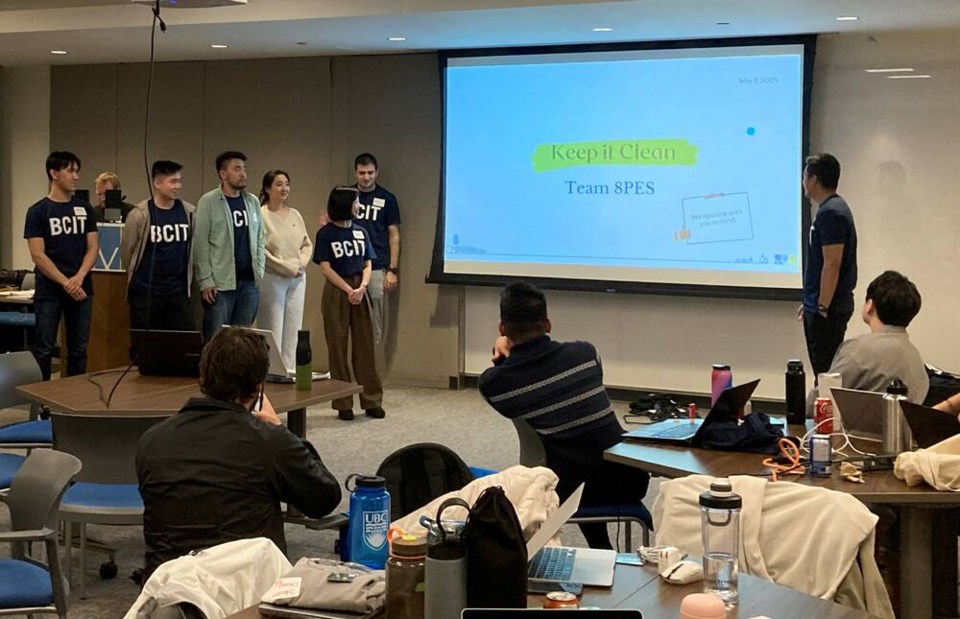A group of BCIT students has proposed to use AI technology to make Vancouver International Airport (YVR) a cleaner, nicer environment.
The proposal, named “Keep it Clean,” won the first student hackathon held by the airport and the organizer said they will look into the feasibility of adopting the idea in real life.
It would involve having a hi-tech camera on the ceiling, which could detect the likes of spills, broken lights and medical emergencies.
“Our winning idea, we call it ‘Crow’s Nest’, involved using a big overhead camera at the very top of the ceiling [in the airport],” Matthew Puyat, a BCIT team member, told the Richmond ߣÄÌÉçÇø.
“We would train it to detect problem areas…using AI, and then that camera would contact related parties to handle the problem.”
He explained that there is a program available that they can feed images of, for example, a spill or a medical emergency into, and it can recognize similar activities that take place later.
Schneider Electric, YVR’s technology consultant and co-organizer of the event, said the students provided an innovative solution to a common hygiene challenge airports face.
Students' tech solutions could solve many issues
And it’s more critical for YVR now after it cancelled the $600-million expansion plan and aimed to increase the efficiency of the existing facilities instead.
“What impressed me most is that they were looking at trying to predict using artificial intelligence, rather than react to what is happening,” said Nica.
“They didn’t look at cleaning only, they also looked at garbage sorting, trying to create a model to predict where the high traffic areas are, how we can adapt the lighting and the heating, to improve the energy efficiency.”
He said other teams from BCIT, SFU and UBC also came up with innovative ideas to maximize energy efficiency and resources at the airport, and one proposed a robot like Rosey from the Jetsons to provide greeting support.
“I believe China and Singapore have something similar to that one right now,” said Nica.
“We are working with the airport to analyze and integrate some of the solutions in real life. Every team has some bits and nuggets in there and some of them will be definitely put in practice.”
A total of $10,000 in prizes were given to the winning teams at the hackathon.




